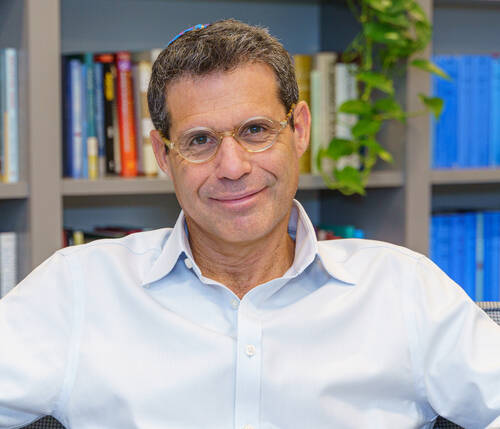The Importance of Hanukkah
The Importance of Hanukkah

Soon, the newspapers will publish Hanukkah-related articles. Many will claim to reveal the best latke recipe, and some will focus on the meaning of the festival. Among the latter, I have noticed in the past few years, most include a disclaimer such as, “Here is how not-important Hanukkah is, from a religious standpoint, to Judaism.”1 And go on to clarify, “as any rabbi would be quick to explain, Hanukkah is one of the least important occasions on the Hebrew calendar. Unlike major holidays such as Passover, Sukkot and the weekly Sabbath—all of which include extensive ritual requirements as well as prohibitions against work—Hanukkah is categorized as a minor festival whose only real decree is to light candles for eight nights. Everything else is custom or adaptation.”2
While the information in these articles is correct, Hanukkah, as a non-biblical festival, doesn’t contain the Shabbat-like requirements. Nevertheless, in my opinion, it is an unfair overstatement to claim that in the 21st century it is not an important holiday. A 2018 survey found that two-thirds of American Jews view Hanukkah as “one of the three most important holidays.” And 60% of American Jews, as well as 73% of Israeli Jews, light candles on each of the holiday’s nights.
That brings up the question…by which criteria do we evaluate the importance of a holiday? If it is by the number of prohibitions and halachic requirements, Shavuot is much more important. But let’s be honest, how many Jews even know when Shavuot is celebrated, let alone observe it?
The reality is that we have been celebrating holidays for more than three millennia. Some have been there from the inception of Judaism, and some were added later. And historically, even the most ancient ones went up and down in the ladder of importance depending on theological, geographical, and economic situations. Take Sukkot for example. It used to be the most important holiday. The bible often talks about it, while barely mentioning other Jewish holidays at all. At times, it’s simply called Chag—holiday, or The Holiday, and even involved the largest number of animal sacrifices. Sukkot is still celebrated today, but coming only a few days after Yom Kippur (which rose to the top), is often treated more like an afterthought than the most important week on the Jewish calendar.
The 20th century pushed Hanukkah up on the festivals ranking. In Israel, we loved the association of the Maccabees with the Israeli army, who, despite being small in size, defeated its numerous Arab enemies. In the United States, the rabbis who were concerned about Jewish children feeling envious of their Christian neighbors elevated and reshaped Hanukkah so it could let kids indulge in a joyous occasion around the same time of year. The holiday’s timing during the Christmas season offered a way for Jews to celebrate their own holiday along with the majority of Americans.
It’s time to stop being apologetic about Hanukkah and to fully celebrate it with our family and friends.
Have a happy Hanukkah!
1 Dara Lind, Vox, December 3, 2018
2 Jennifer Bleyer, Washington Post, December 2, 2015
Fri, October 31 2025
9 Cheshvan 5786
Upcoming Events
-
Friday ,
OctOctober 31 , 2025Shabbat Services
Friday, Oct 31st 6:30p to 7:30p
-
Saturday ,
NovNovember 1 , 2025Men's Club Weekly Walk & Brunch
Shabbat, Nov 1st 9:30a to 11:00a
-
Sunday ,
NovNovember 2 , 2025K-2 Youth Group: Food Face Competition
Sunday, Nov 2nd 11:00a to 1:00p
-
Monday ,
NovNovember 3 , 2025Men's Monday Weekly Lunch
Monday, Nov 3rd 12:00p to 2:00p
-
Tuesday ,
NovNovember 4 , 2025Yoga with Yael
Tuesday, Nov 4th 10:00a to 11:00a
-
Tuesday ,
NovNovember 4 , 2025Choir
Tuesday, Nov 4th 6:30p to 7:30p
-
Wednesday ,
NovNovember 5 , 2025Mah Jongg
Wednesday, Nov 5th 1:00p to 4:00p
-
Wednesday ,
NovNovember 5 , 2025SH Board Meeting
Wednesday, Nov 5th 4:00p to 5:00p
-
Wednesday ,
NovNovember 5 , 2025Adult Education: Great Jewish Debates
Wednesday, Nov 5th 6:30p to 8:00p
-
Thursday ,
NovNovember 6 , 2025Canasta
Thursday, Nov 6th 1:00p to 3:30p
Update this content.
Come Together
Something meaningful and dynamic is happening here at Temple Beth Am. It springs from the warmth of our welcome and the energy of our actions. We call it: Kulanu - All of Us Together.
Join UsUpcoming Events
-
Friday ,
OctOctober 31 , 2025Shabbat Services
Friday, Oct 31st 6:30p to 7:30p
-
Saturday ,
NovNovember 1 , 2025Men's Club Weekly Walk & Brunch
Shabbat, Nov 1st 9:30a to 11:00a
-
Sunday ,
NovNovember 2 , 2025K-2 Youth Group: Food Face Competition
Sunday, Nov 2nd 11:00a to 1:00p
-
Monday ,
NovNovember 3 , 2025Men's Monday Weekly Lunch
Monday, Nov 3rd 12:00p to 2:00p
-
Tuesday ,
NovNovember 4 , 2025Yoga with Yael
Tuesday, Nov 4th 10:00a to 11:00a
Privacy Settings | Privacy Policy | Member Terms
©2025 All rights reserved. Find out more about ShulCloud

